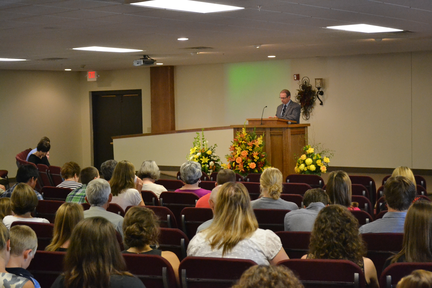A Tongue Twister

ILLUSTRATIONS OF THE TONGUE (3:3–5)
A. How it can control (3:3–4)
1. It is as a bridle to a horse (3:3).
2. It is as a rudder to a ship (3:4).
B. How it can consume (3:5): It is like a spark, which, though small, can destroy a great forest.
III. INIQUITY OF THE TONGUE (3:6): It can be set on fire by hell itself, utterly corrupting and destroying its owner.
IV. INCORRIGIBILITY OF THE TONGUE (3:7–8)
A. People have been able to train the brute creatures (3:7).
B. No person has been able to train the tongue (3:8).
V. INCONSISTENCY OF THE TONGUE (3:9–12)
A. The contradiction (3:9–10): It tries to do two things simultaneously.
1. It tries to praise God (3:9a, 10a).
2. It tries to curse people (3:9b, 10b).
B. The conclusion (3:11–12): It cannot do these two things simultaneously.
1. Fresh water and salt water cannot flow from the same spring (3:11, 12c).
2. A fig tree cannot bear olives (3:12a).
3. A grapevine cannot produce figs (3:12b).